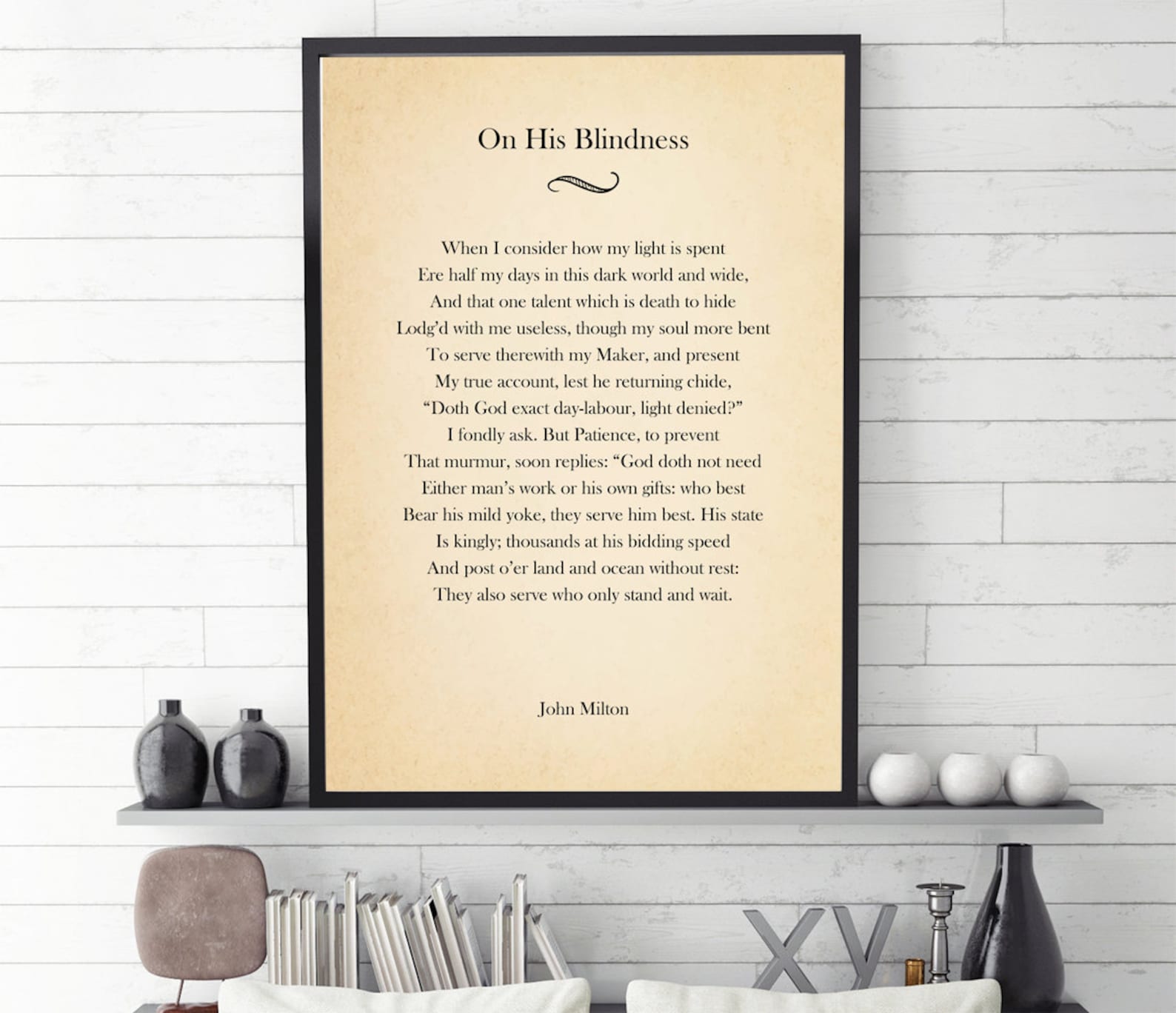
PM [1]
Rank : Helper
Status : Super Owner
#1

## A Light Within: Analyzing "On His Blindness" by John Milton
John Milton's sonnet "On His Blindness" is a poignant exploration of faith and resilience in the face of adversity. The poem, written during a period when Milton was grappling with the loss of his sight, is a testament to the power of the human spirit and the enduring nature of hope.
Structure and Form:
Sonnet Form:
Milton utilizes the traditional Italian sonnet form, with 14 lines divided into an octave (eight lines) and a sestet (six lines). This form, often used for love poetry, adds a layer of complexity to the poem as it explores a different kind of "love": the love of God and the pursuit of his will.Rhyme Scheme:
The poem follows the traditional rhyme scheme of ABBA ABBA CDECDE. This rhythmic structure creates a sense of flow and order, reflecting Milton's internal struggle to find meaning amidst the chaos of his blindness.Themes and Symbolism:
Blindness as a Metaphor:
While the poem is literally about Milton's physical blindness, it transcends this literal meaning to become a metaphor for the darkness of human suffering and the challenges of understanding God's will. The darkness represents not only the physical world but also the uncertainties and anxieties that plague human existence.The Power of Faith:
Milton's faith in God is a recurring theme throughout the poem. He uses the phrase "God doth not need / Either man's work or his own gifts" (lines 11-12) to express his understanding that God is beyond human comprehension and that he is not defined by human achievements. This faith serves as a source of comfort and strength in the face of adversity.The Role of Suffering:
Milton does not shy away from acknowledging the pain of his blindness. The lines "When I consider how my light is spent / Ere half my days in this dark world and wide" (lines 1-2) capture the raw emotion of grief and loss. However, he ultimately finds meaning in his suffering, viewing it as a potential path to God's service.Light and Darkness:
The poem utilizes the dichotomy of light and darkness as a central motif. Milton's blindness represents the darkness, but the poem also hints at an inner light, the "light within" that guides his faith and purpose. The final couplet, "They also serve who only stand and wait," suggests that even in the darkness, one can still serve God through patience and contemplation.Analysis of Key Lines:
* "They also serve who only stand and wait," (lines 13-14): This famous couplet is a powerful reminder that service to God is not limited to active work. It emphasizes the importance of patience, trust, and contemplation in the face of uncertainty.
* "When I consider how my light is spent / Ere half my days in this dark world and wide" (lines 1-2): These lines capture the sense of loss and frustration Milton feels. The phrase "dark world" not only refers to his blindness but also the inherent darkness of human suffering.
* "God doth not need / Either man's work or his own gifts" (lines 11-12): This statement reflects Milton's understanding of God's transcendence and his acceptance of the unknown. It suggests that human efforts and achievements are ultimately insignificant in the grand scheme of God's plan.
Conclusion:
"On His Blindness" is a powerful and moving poem that transcends the personal experience of blindness to become a meditation on faith, suffering, and the enduring human spirit. Milton's exploration of his own darkness leads him to a deeper understanding of God's will and the power of faith, ultimately offering a message of hope and resilience in the face of adversity.
--------- Post edited by - Mr.Love
-------------------------
Moved by Mr.Love
Reason : New section